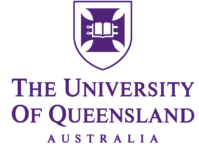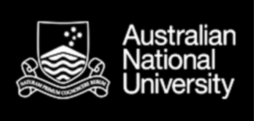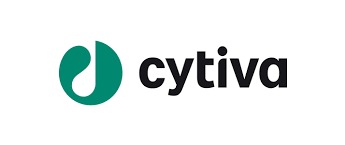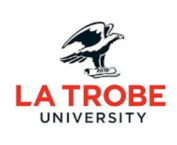
Our partners
VivaZome Therapeutics has drawn together a highly capable team of experts covering all the key elements of product development and commercialisation. This expertise is accessible to VivaZome through founders, advisors and partners. The VivaZome founders have drawn upon their deep understanding of the sector and their extensive network of contacts to identify the “right” people for the VivaZome projects.

The University of Queensland (UQ) – CRC-P Round 13 Project Partner
VivaZome is collaborating with the Centre for Advanced Imaging (CAI) at UQ to develop exosome therapeutics for the treatment of traumatic brain Injury (TBI) and post-traumatic epilepsy (PTE).
TBI afflicts close to 69 million people globally. Patients with severe TBI are at highest risk of developing post-TBI epilepsy, as well as being the group with the poorest prognosis for functional recovery. They also incur the highest costs for rehabilitation and care.
Emeritus Professor David Reutens and Research Fellow Dr Min Chen are at the forefront of the research program at UQ in support of the VivaZome CRC-P Project. Professor Reutens is the founding director of the Centre for Advanced Imaging. Additionally, he is an experienced clinical neurologist specialising in epilepsy and serves as a senior staff specialist at the Royal Brisbane and Women’s Hospital.
In the CRC-P project, VivaZome will supply both native and customised exosomes to the CAI for evaluation in mouse models of TBI and PTE. The objective is to down-regulate the inflammatory reaction in TBI by using bioengineered exosomes to modify or prevent susceptibility to PTE, diminish brain damage, and enhance the restoration of motor and cognitive functions. The CAI has state-of-the-art research imaging instruments, is the only facility of its type in Australia and one of a select few such centres worldwide. Researchers at CAI are dedicated to pioneering advancements in spectroscopic and imaging technology, as well as the development of imaging biomarkers across various biomedical research domains. Their work often entails collaboration with clinical research sites and other local, national, and international research institutions.
Professor David Reutens: “An exosome therapeutic that reverses the inflammation arising from TBI would provide a profound improvement in outcome for both individual patients and the healthcare system”

Australian National University (ANU) – CRC-P Round 13 Project Partner
VivaZome and Australian National University (ANU) are collaborating to develop novel exosome-based therapies targeting retinal (eye) diseases, particularly age-related macular degeneration (AMD). AMD is the leading cause of blindness in the Western World, and is projected to affect 288 million people worldwide by 2040.
ANU’s participation in the CRC-P Round 13 project is spearheaded by Associate Professor Riccardo Natoli, who leads the Clear Vision Research Laboratory at the John Curtin School of Medical Research (JCSMR) and ANU Medical School. The JCSMR boasts expert personnel and access to cutting-edge technical resources and infrastructure. These resources include facilities for sequencing, animal research, gene editing and cytometry, as well as high-throughput sequencing facilities and bioinformatics support.
The Round 13 CRC-P project at ANU involves:
- Testing of VivaZome’s exosomes in animal models of retinal degeneration to evaluate their efficacy and safety.
2. Loading of specific microRNA (miRNA) cargo into the exosomes and delivering them to the degenerating retina, aiming to address the underlying causes of retinal degeneration at a molecular level.
Associate Professor Ricardo Natoli: “Age-related macular degeneration is the leading cause of blindness in the western world, with no effective treatments. Our preliminary findings show that supplementation of healthy retinal EVs with specific miRNA species protect the retina against degeneration. We are delighted to be working with VivaZome as industry leaders in the EV therapeutic space to explore the use of VivaZome EVs to deliver key miRNAs to the retina”
La Trobe University (LTU) – CRC-P Round 13 Project Partner
For the CRC-P Round 13 project, the groundwork laid by VivaZome and LTU in the previous successfully-completed CRC-P Round 4 project “Enabling Exosome Therapy: Developing an Advanced Manufacturing Process”, serves as a solid foundation. LTU played a key role in the round 4 project by undertaking crucial tasks such as the development of functional assays and the quantitative and qualitative assessment of exosome fractions derived from multiple cell types and process iterations. One of the key contributions of LTU was its expertise in analysing the miRNA content of exosomes. This capability enabled VivaZome to correlate the cargo of the exosomes with their biological activity, thereby guiding their potential for clinical translation.
The work conducted by LTU in the CRC-P project is spearheaded by Dr Lesley Cheng, a respected researcher in the field of exosomes. Dr Cheng is a pivotal member of the La Trobe Research Centre for Extracellular Vesicles, which boasts a comprehensive array of specialised technology and top-tier expertise in this domain. In support of the CRC-P Round 13 project, LTU will also offer access to specialised infrastructure at the La Trobe University Institute for Molecular Sciences (LIMS) laboratories and the Bio-Innovation Hub. Here, VivaZome scientists will have the opportunity to carry out experimental work in suitably equipped laboratories. Dr Cheng will provide expert research services in exosome analytics and characterisation. Additionally, her team will conduct small RNA sequencing on exosomes and perform bioinformatic analyses to identify gene pathways regulated by exosomal micro-RNAs.
https://www.latrobe.edu.au/school-agriculture-biomedicine-and-environment
SeerPharma Pty Ltd – CRC-P Round 13 Project Partner
SeerPharma is a consulting firm specialising in Quality and Compliance, particularly in Good Manufacturing Practices (GMP). With offices in Melbourne, Sydney and Singapore, they provide services to pharmaceutical, medical device and life science companies across the Asia-Pacific region. Their expertise lies in assisting organisations to ensure that their facilities, equipment, quality systems and processes comply with various regulatory standards and requirements, including those of the FDA, PIC/S, TGA, WHO, ISO, ICH and other regulatory bodies.
For the CRC-P Round 13 project, SeerPharma will contribute personnel and resources specialised in Quality Management, Risk Management and GxP compliance. Their role is to ensure that the manufacturing and control activities align with current regulatory requirements for therapeutic product development.
Specifically, SeerPharma is focussing on establishing a stage-appropriate Quality Management System applicable to the operation of the VivaZome manufacturing facility and analytics laboratory. Additionally, they will provide education and training aimed at implementing a Pharma 4.0 approach to exosome product development, manufacture, and control. This training will empower the VivaZome team with the latest industry practices and methodologies.

Cytiva (Global Life Sciences Solutions Australia Pty Ltd) – CRC-P Round 13 Project Partner
Cytiva is a global life science leader, collaborating with academic and translational researchers and developers and manufacturers of biotherapeutics, cell and gene therapies, and cutting-edge technologies like mRNA. With nearly 16,000 associates across 40 countries, Cytiva provides technologies and services to advance and accelerate the development, manufacture, and delivery of therapeutics. For the CRC-P Round 13 project, Cytiva will supply equipment to the VivaZome manufacturing facility, including bioreactors and purification platforms for the concentration of exosomes.
Cytiva will also conduct intensive hands-on training for VivaZome staff on equipment operation and provide ongoing support to optimise exosome manufacturing processes. Additionally, in collaboration with VivaZome and SeerPharma, Cytiva will organise and provide on-site training programs for students and external parties on equipment operation within a cleanroom environment, contributing to the upskilling of the Australian workforce.

University of Adelaide
Under a licensing agreement with the University of Adelaide, VivaZome secured global intellectual property rights for the selection, isolation, purification, expansion and processing of stem cells from specific human tissues deemed suitable for the production of subcellular fractions. Leveraging this technology, VivaZome has developed proprietary cell lines and exosome products, as part of its commitment to advancing and commercialising exosome-based therapeutics.
The research program leading to the licensing agreement was conducted at the University of Adelaide in the Mesenchymal Stem Cell Laboratory in the School of Medicine, Faculty of Health and Medical Sciences. This laboratory was established and is led by Professor Stan Gronthos, a distinguished stem cell researcher and NHMRC Principal Research Fellow renowned for his expertise in stem cell biology and regenerative medicine. He is also Co-Director of the Centre for Stem Cell Research at the university. Access to the university’s technology and the associated cell lines represents the culmination of an extensive effort by VivaZome to identify and secure cell types with the potential to function as the factories for the company’s therapeutic exosomes.

